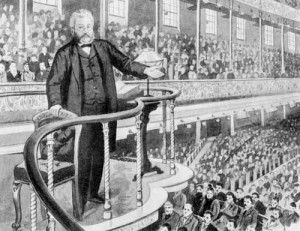Death is the Dark Madman and Killer
Death.
Foreboding black darkness.
Unexpected.
Unnecessary.
Mysterious.
Frightening.
Disheartening sadness.
Mortality
Hell?
Heaven?
Everyone likes a birthday party or a wedding, but no one likes a funeral. We all want to pay our respects to the dead and gather with the family in mourning, but no one can really say they delight in funerals.
Funerals remind us of our mortality and finality.
I still remember when my friend and a mentor in Christ Charles Waddy who died almost 20 years ago. I looked into the casket and the man who was once full of life and breath and was an example of Jesus to me was gone. There was a body, but the man was gone.
You will understand this if you recall looking at a loved one in the face while they are “resting†in the casket, or just seeing the outside of the casket, knowing that a loved one is inside. It saddens us. “One day here- – next day gone.â€Â We all say it like this. “I can’t believe it, he/she was just with us, in this room, speaking, talking…living.â€Â We then face the future, the rest of our days, without this loved one.
This is the pain and anguish Martha and Mary were experiencing in Bethany just after they had lost their beloved brother Lazarus to an illness in John 11.
We should hate death with all of our might! We should weep not only for those who we have lost to death, but weep that death still lives! Death should make us mad – not mad at God for allowing the death of a loved one, but hate death as a thing, a wicked and dark force to be reckoned with.
Death is the result of sin and the fall of man. Otherwise there would be no death. Death haunts human beings all their lives, because ultimately they know they have a date set for meeting death face to face. Have you ever seen Ingmar Bergman’s film the ‘The Seventh Seal’? It is worth a careful viewing if you are able to see it!
In the film, death is seeking the life of a medieval knight returning from the crusades. The knight challenges death to a game of chess. If the knight wins, death loses his grip on him; if death wins, he gets to claim the life of the knight. So death plays chess and pursues the man and even though the man seeks God’s help, God does not seem to answer the man. His cries are answered by silence in the knight’s estimation.
In one scene, the knight speaks to who he thinks is a priest in a confessional about his fears of death, only to find out that he is speaking his confession to death himself. He says:
“My indifference has shut me out. I live in a world of ghosts, a prisoner of dreams. I want God to put out his hand, show his face, speak to me. I cry out to him in the dark but there is no one there…Why can’t I kill God within me?â€
As death intrudes into the confessional to hear the useless request of the priest for mercy, so death intrudes into God’s creation to take the life of men made in his image. We must remember that
Death is an intruder in the creation: a thief, a robber, a heartless, unprincipled, greedy madman and killer who longs to own us and make us his own.
Death Makes Life Meaninglessness Under the Sun
Have you ever considered that from the moment we exit the womb and enter this world we begin the process of dying? It is the perspective with which you look at life. You are either living and growing, or you are dying and decaying.
You know, all of us are looking for what we call the “meaning of lifeâ€. Yet as long as death lurks at the end of the road of our life with arms open wide, life will never make much sense.
As the Book of Ecclesiastes teaches us all, there is no “meaning of life†only meaninglessness or vanity in this world characterized by sin, misery and ultimately death. Read carefully portions from Ecclesiastes 8:
Ecclesiastes 8:6-17: For there is a time and a way for everything, although man’s trouble lies heavy on him. 7 For he does not know what is to be, for who can tell him how it will be? 8 No man has power to retain the spirit, or power over the day of death.
There is no discharge from war, nor will wickedness deliver those who are given to it. 9 All this I observed while applying my heart to all that is done under the sun, when man had power over man to his hurt. 10 Then I saw the wicked buried. They used to go in and out of the holy place and were praised in the city where they had done such things. This also is vanity. 11 Because the sentence against an evil deed is not executed speedily, the heart of the children of man is fully set to do evil.
12 Though a sinner does evil a hundred times and prolongs his life, yet I know that it will be well with those who fear God, because they fear before him. 13 But it will not be well with the wicked, neither will he prolong his days like a shadow, because he does not fear before God. 14 There is a vanity that takes place on earth, that there are righteous people to whom it happens according to the deeds of the wicked, and there are wicked people to whom it happens according to the deeds of the righteous. I said that this also is vanity. 15 And I commend joy, for man has no good thing under the sun but to eat and drink and be joyful, for this will go with him in his toil through the days of his life that God has given him under the sun. 16 When I applied my heart to know wisdom, and to see the business that is done on earth, how neither day nor night do one’s eyes see sleep, 17 then I saw all the work of God, that man cannot find out the work that is done under the sun. However much man may toil in seeking, he will not find it out. Even though a wise man claims to know, he cannot find it out.
The only hope “under the sun†in this world according to the Bible, particularly in the Book of Ecclesiastes, is that God himself would come “under the sun†to give hope and life to those who would believe and fear him.
One Day Closer to Death…or Life!?
In our text from John 11 today, Jesus becomes the solution to the so-called problem of evil, and the man who conquers death, the very thing all men fear- – the very thing that prevents any man from living at peace in this world apart from their Creator.
How do you handle the reality of death? If you want to “lose friends and not influence people†just go into a room of people, particularly at a party and ask them if they would like to talk about death. It is a strange thing, but we can talk about many other things, but one cannot talk about death. We even use euphemisms to cause us to forget it: “He passed awayâ€; “He is not with us any longerâ€; “He expiredâ€. All these euphemisms are ways people avoid the reality of death- – and they will definitely not speak about it.
Yet every one of us, with every tick-tick-tick-tock of the clock is getting one moment, one minute, one hour, one day closer to death. And what hope do you have? Some try to face death head on with presumptuous pride and arrogance by doing “extreme sports†or living carelessly. They think that if they look death in the face head on, that the fear of death will subside and they will find peace- -but they don’t.
Some get busy and don’t think about it or talk about it- – “avoid it at all cost!â€- -they say. But in the quiet times and in the good times, there is the dark foreboding cloud of death hanging over them.
There are two times when death is most “forebodingâ€. When babies are born and when people die. I think the reason we think of death when babies are born is that we are reminded of life, the beginning, and so we naturally then think of the end. Also, perhaps more understandably, we think about death when we lose those whom we love to it.
Yet no one can get away from death’s pursuit! We need hope! We need revelation from above! We need a door- -an exit- – an escape out! So don’t despair becuase Jesus says:
“I AM the Resurrection and the Life. He Who Believes in me, though he die, YET WILL HE LIVE.â€
Do you believe this? It is your only hope!
In our last study, we beheld the glory of God in the face of Jesus Christ as he revealed himself as the Good Shepherd in John 10. Jesus was calling his sheep, his own to come to him and find salvation, security, and safe pasture. Jesus had come for those who hear his voice (such as the man born blind) and have life and life more abundantly!
“In JESUS is LIFE…â€
Today, we see the height of Jesus’ SIGN-ificant signs and miracles to show that he has life in himself. As John 1:5 says:
In him was life, and the life was the light of men.
Let us review the miraculous SIGN-ificant SIGNS of Jesus so far in the Gospel of John. In John 2, Jesus changes water into wine to show that the eschatological feast of the Lamb has begun in him. In John 4, Jesus heals an official’s son in Galilee. In John 5, Jesus showsthe glory of God in the healing of the lame man, revealing himself as Messiah who Isaiah spoke of in Isaiah 35:1-7:
The wilderness and the dry land shall be glad; the desert shall rejoice and blossom like the crocus; 2 it shall blossom abundantly and rejoice with joy and singing. The glory of Lebanon shall be given to it, the majesty of Carmel and Sharon. They shall see the glory of the LORD, the majesty of our God. 3 Strengthen the weak hands, and make firm the feeble knees. 4 Say to those who have an anxious heart, “Be strong; fear not! Behold, your God will come with vengeance, with the recompense of God. He will come and save you.” 5 Then the eyes of the blind shall be opened, and the ears of the deaf unstopped; 6 then shall the lame man leap like a deer, and the tongue of the mute sing for joy. For waters break forth in the wilderness, and streams in the desert; 7 the burning sand shall become a pool, and the thirsty ground springs of water…
In John 6, Jesus provides abundant bread in the wilderness for the people who are following him, and walks on the water to safely bring his disciples to the other side of the shore. In John 9, Jesus heals a man born blind. But now in John 11, Jesus doesn’t merely restore the living in his signs, he revives the dead! What glory we see in the face of Jesus Christ!
Particular Redemption, Resurrection, and Revival
Jesus had heard that “a certain man was ill, Lazarus of Bethany†(John 11:1-5). This is important. John begins the chapter with Jesus’ love for his own. Jesus heard that a “certain man was illâ€. Not just any man, but one whom Jesus loved (John 10:3b).
There were many sick and ill when Jesus walked the earth. Many had died on the very day that Lazarus had died, but Jesus chooses to particularly redeem, resurrect and revive the one he loved and knew by name:
Lazarus
But instead of going quickly to Bethany to restore Lazarus while he was living though ill, Jesus purposely waited two more days before he went to him (John 10:6). Now he had already said to his disciples: “This illness does not lead to death. It is for the glory of God, so that the Son of God may be glorified through it.â€
The purpose of Jesus Christ, the One sent from the Father had a mysterious purpose. He was content and pleased to tell his disciples that good would come from this, but he would not allow them full knowledge of the mystery of his will.
In fact, the Apostle John wants his readers to feel the tension: a man is ill and dying, Jesus says this illness will not end in death, yet in John 10:6 the purpose of Jesus staying a longer period where he was staying was because he loved Martha, Mary and Lazarus, and he heard Lazarus was ill??
“For Those Who Love God All Things Work Together for Good!â€
Two things we can remember about this: 1) All things work for the good of those God loves; 2) God does things that are often mysterious from our perspective, but has a infinitely good reason for why he is doing what he is doing! It is better that Lazarus die, just because Jesus loves him particularly, as well as his family!
Remember Romans 8:28 in this context:
And we know that for those who love God all things work together for good, for those who are called according to his purpose.
Just as Job did not understand his affliction, he knew ultimately that God had sent it- – not as a direct result of his sins, for he trusted God by faith- -but because God meant it for his good and that a mediator would aid him in heaven. Job says:
“Although he slay me, yet will I love him…and I know that in my flesh I shall see God!†(Job 13:15; 19:25-26).
What trust Job had in God’s goodness and his merciful wisdom!
We should remember this when we go through afflictions and circumstances that we don’t understand. We will see God- – in our flesh- -We know our Redeemer lives in Jesus! We know that it is for our good what God has allowed to come in our lives and that is why we are to rejoice and consider it joy and be thankful in all circumstances (James 1; 1 Thessalonians 5:17). Why? Because we know that God means it for good and has a most wise reason for allowing it.
In fact, in the Book of Job the first two chapters point our attention directly to the throne room in heaven before Job goes through the struggles of trying to understand WHY God is allowing his affliction to come upon his life. In the Book of Revelation, we see the throne room of God in Revelation 4 and 5 so that the persecuted Church throughout the ends of the ages might understand that whatever may come her way, whatever strife and difficulty she may have to endure, God still sits on the throne and has conquered death, hell and the devil (Hebrews 2:14-18).
The Living Clay and the Dead Clay of the Master
Jesus then proceeds to visit Bethany (John 10:11). He tells his disciples that he goes to awaken Lazarus. The disciples think that he must be speaking of an ill man sleeping and trust that he will recover (v. 12). At this point, the disciples’ faith seems solid in Jesus’ ability to work with “living clayâ€, but they are unable to imagine the fact that Jesus can also work with “dead clayâ€. They haven’t comprehended this as of yet!
So, Jesus tells them plainly: “Lazarus has died…†(v. 14). Another purpose for Jesus not being “there when Lazarus died†he reveals to be so that they might believe in his ability to work with “dead clay†as well as the “living clayâ€.
Jesus can revive the dead as well and as easily as He restores the living!
Once Jesus gets to Bethany, Lazarus has been dead for four days. It is interesting to note the responses of Mary and Martha. Could it be that Mary is a bit bitter that Jesus has not come as quickly as he could? Is her faith weaker than Martha’s? Perhaps that is why both of them tell Jesus that “If you had been here, our brother Lazarus would not have died?â€Â Is there bitterness with God revealed here subtlely?
Notice that Martha hears Jesus has come and went out to meet him (v. 20). She informs him that if he had been there, there would have been no death. Again, notice the faith of the disciples. At this point, Martha and Mary cannot conceive of restoration and reviving beyond the grave- -death has had the last word at this point in their minds!
Yet Martha still has hope. She is amazing in her faith when she says: “But even now I know that whatever you ask from God, God will give you.â€Â Do you have faith such as this? To believe that whatever you ask God for in Christ, he will answer. All things are indeed possible for those who believe in Jesus! Jesus answers Martha’s faith that Lazarus will live again (v. 23).
It seems that Martha misunderstands Jesus here.  Martha knows that Lazarus is safe in Jesus’ care, for he can pray to the Father and ask him to keep Lazarus safe in death. She believes that Jesus will raise him up on the last day, but it is still beyond her wildest imaginations that Jesus will raise up Lazarus NOW. Jesus says to her:
I AM the Resurrection and the Life. Whoever believes in me, though he die, yet shall he live.
As we learned in our last study of John 10, the hope of God’s people in our Good Shepherd is that although we walk through the valley of the shadow of death, we shall fear no evil- – Jesus’ rod and staff will comfort us!
When Martha informs Mary that Jesus is present with them, she quickly gets up and goes to him. And she says the same thing that Martha had said to him, which reveals that they might have been speaking this way together privately. She says: “Lord, if you had been here, my brother would not have died.â€
God Weeps and Sympathizes in Our Weaknesses
Mary was weeping and Jesus sympathized with her weakness (cf. Hebrews 4:15-16). Jesus was “greatly troubled†when he saw the sadness of the mourning over Lazarus. Jesus asks where the body is located and then he weeps.
God weeps over the consequences of sin. Jesus is greatly agitated, or “greatly troubled†in his soul because of the fact that death has conquered those whom he loves and who are made in God’s image for His glory!
Again in 10:37 we see that some of the disciples still believe that Jesus can do great signs, even restore the living, but they have not come to understand that He who can restore the living, can also as easily with Creator-Authoritative power revive the dead!
In order to perform this great SIGN-ificant sign, Jesus asks for assistance from those who love Lazarus. He asks them to take away the stone, and to unbind him and let him go of his grave clothes after he has arisen from the dead.
What are we talking about here? A resurrection from the dead? How can this be? As Jesus stands outside the tomb-cave, he stands in the midst of a great odor (I appreciate the use of “stinketh†in the KJV translation!). This odor or death-stink reminds everyone of the conquering power of death that steals a man’s flesh and eats up his bones.
Jesus, with full power of the Creator, speaks with a divine fiat, or command to Lazarus the dead man and says:
Lazarus, Come Forth!
Death, the Dark and Evil Conqueror of Man
Something very important to remember: Dead men cannot hear; they cannot speak; they cannot move; they cannot comprehend; they do not cooperate with the living in any way; they do not wear plaid (a reference to an old film noir). To say this directly: Dead men cannot do anything but continue to die and perish – to “stinkethâ€!
The dead have no relationship to the living.
Yet the Creator of Heaven and Earth in the flesh is at the tomb of Lazarus. Just as he said “Let there be light†in the creation (and there was light!), so he here says “Let there be lifeâ€- – and there was life! This is a sovereign act on God’s part out of love to resurrect and revive the dead. Lazarus hears only because God has given him the ability to respond to his command. In fact, Lazarus could not have NOT responded!
Lazarus had no ability to respond while dead, and no ability to NOT respond while dead when Jesus called him!
This is gracious, sovereign, irresistible grace- – the kind of grace that only God can give and offer! Lazarus heard the voice of his Creator-Savior, and he came forth.
Now a special point needs to be made. One that Jesus illustrates here in John 11, but was told to Nicodemus in John 3. No one can see or enter the kingdom of God, unless he is born again! Lazarus had to be resurrected, revived, born again in order to be able to hear, see, and enter the Kingdom of God revealed in the Person of Jesus who calls him by his grace!
Now think about this! When the Creator-Savior calls his people forth from the dead, they cannot and do not want to resist. Do you understand? They have no ability to respond unless called forth from the dead, and once they are called forth they are unable to, and unwilling to resist!
When the Apostle Paul says that once we were “dead in trespasses in sins†in Ephesians 2, he means that once we were dead to life in Jesus and alive to sin, the world, the flesh, and the devil. We had no life toward God, no communion, no hope, no understanding, no hearing, no seeing, no life united to the living God- -but we were separated away from him because of our sins.
And in that living-dead predicament, the result of the fall of Adam and sin in our lives, we are resurrected and revived to become the dead-living! Read carefully the words of Ephesians 2:
And you were dead in the trespasses and sins 2 in which you once walked, following the course of this world, following the prince of the power of the air, the spirit that is now at work in the sons of disobedience- 3 among whom we all once lived in the passions of our flesh, carrying out the desires of the body and the mind, and were by nature children of wrath, like the rest of mankind. 4 But God, being rich in mercy, because of the great love with which he loved us, 5 even when we were dead in our trespasses, made us alive together with Christ- by grace you have been saved- 6 and raised us up with him and seated us with him in the heavenly places in Christ Jesus, 7 so that in the coming ages he might show the immeasurable riches of his grace in kindness toward us in Christ Jesus. 8 For by grace you have been saved through faith. And this is not your own doing; it is the gift of God, 9 not a result of works, so that no one may boast.
“Living Dead†or “Dead Living�??
Notice a few things as you compare this to the SIGN-ificant sign and illustration of this truth from Jesus in John 11. The Apostle Paul says those who do not know Christ are “dead in their trespasses and sinsâ€. They walk according to the world, flesh and the devil (v. 2-3). BUT GOD (v. 4) made us alive (v. 5) together with Christ! Why? Because he is rich in mercy (v. 4a); Because He loved us (as he loved Lazarus) (v. 4b); Because of his infinite mercy and grace (vv. 5, 8).
Notice something extremely important in this passage. WHEN did God raise us up and resurrect us in his mercy, because of his love, and infinite mercy and grace? WHEN we were dead in our trespasses, He made us alive! (v. 5). We had nothing to offer God but death. In reality, we “stinketh†in our sins!
Death was revealed in our sinfulness, rebellion against our Creator, separation from fellowship with God, deaf, blind, shameful, guilty, and awaiting God’s wrath! Yet in this hopeless, bleak situation, God made us alive!
What grace! How this is illustrated in Lazarus’ cave. Jesus makes Lazarus alive.
In the midst of death, in the midst of decaying flesh, and the beginning of the rotting of his bones, Lazarus hears a voice- – not just any voice- -but the voice of his friend whom he loved. And this friend of his was none other than his Creator-Savior.
Upon hearing his friend and savior’s command to come forth- – LAZARUS CAME FORTH! To resist Jesus’ voice and grace when he heard the voice of his Creator-Savior would have been as possible as the light penetrating the darkness in the creation saying back to God when he said “Let there be Lightâ€- – “Well, I don’t want to be…â€Â It couldn’t wouldn’t happen!
God’s saving and sovereign resurrecting and reviving grace comes to us by His Spirit through the power of His word and command. In the cave, dark and lonely that stinketh (KJV), a voice is heard. It is the Great Shepherd who calls, and the dead sheep named Lazarus who the Shepherd knows by name, hears his voice and comes out into his presence and finds salvation, security, and safe pasture in Him!
“In ME I Live and I Move and I Have My Own Being
In John 10, Jesus had just spoken of his death for his own, his sheep. In fact, he was from this point on in his ministry the focus of the Jewish leaders who wanted him killed (John 10:31ff; 11:45-57). Yet Jesus, in the midst of being in danger of his own life, offers life to Lazarus. One important thing we do not want to miss in this passage from John 11:
Jesus loves his own so much that he is willing to resurrect his own people, even before he himself experiences death and is resurrected himself!
Jesus shows forth to the world in this unbelievable and magnificent SIGN-ificant sign that in him is life and that life is the light of men (John 1:4). What does it mean to have life within oneself? As best as I can put it, it means not requiring anyone or anything outside oneself to have to support you. In other words, for created beings it is true that “in HIM we live and move and have our being†as Acts 17 teaches.
But to have life within oneself and to be able to offer it to others as Jesus can, is to say
“In ME I live and I move and I have my own beingâ€
and all other being and life is possible because of me! That gets close to what it means to have life in oneself as Jesus does!
In John 10:18, Jesus speaks of his life this way: “No one takes it from me, but I lay it down of may own accord. I have authority to lay it down, and I have authority to take it up again.â€Â Here Jesus expands on this reality. He not only has the authority to take up again his own life, that is resurrect and revive, but He has the authority to take up again other’s lives as well!
We see a glimpse in this passage of the final day when Jesus shall call forth all of his sheep, all of his own with a great voice of command and will say:
“MY PEOPLE WHOM I LOVE, COME FORTH ENTER INTO THE KINGDOM PREPARED FOR YOU FROM THE FOUNDATION OF THE WORLD!â€
The Apostle Paul describes this day in 1 Thessalonians 4:16-18:
For the Lord himself will descend from heaven with a cry of command, with the voice of an archangel, and with the sound of the trumpet of God.
And the dead in Christ will rise first.
Then we who are alive, who are left, will be caught up together with them in the clouds to meet the Lord in the air, and so we will always be with the Lord. Therefore encourage one another with these words.
Are you encouraged by these words? Is your hope the same as Job’s or Lazarus’, that your Redeemer lives and you shall see him in your flesh one day? (cf. Romans 8:20-25). Do you have the same hope as Lazarus? Are you like Lazarus, spiritually resurrected and revived still awaiting the last day by faith?
Resurrection on the Left, Death on the Right, Here I AM stuck in the Middle with Life-Resurrection…
Lazarus would die again, later in his life. Yet between his resurrection-revival and the end of his life he saw much to inform his faith. He saw the LORD of glory himself who had resurrected-revived him go to his death only to be raised again to glory! He would have known of the ascension and lived his life awaiting Jesus to return again for his people as the glorious beings said to the crowds looking on as he ascended:
And when he had said these things, as they were looking on, he was lifted up, and a cloud took him out of their sight. 10 And while they were gazing into heaven as he went, behold, two men stood by them in white robes, 11 and said, “Men of Galilee, why do you stand looking into heaven? This Jesus, who was taken up from you into heaven, will come in the same way as you saw him go into heaven.
Lazarus lived his life knowing gratefully from whom he had received his resurrection-revival. He lived with his eyes toward heaven as he hoped for the final and ultimate resurrection-revival when all of God’s people would dwell and live in the presence of God for eternity- – never to taste death again (Revelation 7:15-17).
Never to have to attend another funeral, or shed another tear (Rev. 17:15-17). You too live between your first and second resurrection if you are a Christian! As we learned in John 5 (see study from John 5: www.aplacefortruth.org/woe), we who once were literally the “living dead†have now by faith in Jesus become the “dead livingâ€, awaiting our future and final glorious resurrection when he returns.
Lazarus lived his life between the two resurrections with great joy and belief that what God said, he would do. Do you live in such a way that you keep your eyes on the clouds so to speak, while living for Christ here on this earth? The Apostle Paul teaches us the worth and importance of our labors between our first and our second resurrection-revivals:
1 Corinthians 15:51-58: Behold! I tell you a mystery. We shall not all sleep, but we shall all be changed, 52 in a moment, in the twinkling of an eye, at the last trumpet. For the trumpet will sound, and the dead will be raised imperishable, and we shall be changed. 53 For this perishable body must put on the imperishable, and this mortal body must put on immortality. 54 When the perishable puts on the imperishable, and the mortal puts on immortality, then shall come to pass the saying that is written: “Death is swallowed up in victory.” 55 “O death, where is your victory? O death, where is your sting?” 56 The sting of death is sin, and the power of sin is the law. 57 But thanks be to God, who gives us the victory through our Lord Jesus Christ. 58 Therefore, my beloved brothers, be steadfast, immovable, always abounding in the work of the Lord, knowing that in the Lord your labor is not in vain.
“Death, Where is Your Victory?â€
“O death, where is your victory? O death, where is your sting…But thanks be to God, who gives us the victory through our Lord Jesus Christ.â€
Jesus conquered death, hell and the devil and in Him by faith, you may also conquer them. Jesus One- – Death zero. The medieval knight of Bergman’s ‘Seventh Seal’ could not conquer death. In fact, death took he and his friends. Yet in Jesus, we find the one who can destroy death once and for all and offer life.
Yet death is just a foretaste of eternal darkness and sadness. Death is just losing one’s life in this world. Eternal death apart from God is losing one’s life for eternity- -literally losing eternal life. The Bible teaches that “the soul who sins shall dieâ€. If we do not have a Mediator, one who died for our sins, then we shall have to pay the infinite price of offense against God for eternity.
You choose this day: Life in Jesus Christ for eternity, never to experience pain, sadness, death, or hell ever! Or, death in one’s self for eternity, never to experience anything but pain, sadness, death, and hell forever.
This is not a laughing matter. Whether you believe it or not, death is stalking you –look behind you- -in front of you—it is close to you- -you feel it’s breath upon you- – one day older, one day closer…do not wait, but turn in repentance to the living God in Jesus Christ by faith- -he alone gives eternal life, and he alone has conquered death.
Not in Lazarus’ resurrection, but in the resurrection and ascension of Jesus, Jesus actually disarmed, then chained death, hell and the devil together as vanquished foes, and marched home to victory carrying behind him his and our conquered foes. As Colossians 2:13-15 teaches:
And you, who were dead in your trespasses and the uncircumcision of your flesh, God made alive together with him, having forgiven us all our trespasses, 14 by canceling the record of debt that stood against us with its legal demands. This he set aside, nailing it to the cross. 15 He disarmed the rulers and authorities and put them to open shame, by triumphing over them in him.
Jesus is the Resurrection and the Life. Do you believe? The Apostle John wrote his gospel that we might believe in Jesus Christ and IN HIM, have life in his name (John 20:31).
Do you have life in his name? Does Jesus know you by name, or does death know you by name? At the end of your life do you have an appointment with Jesus- – or death?
Charles R. Biggs









